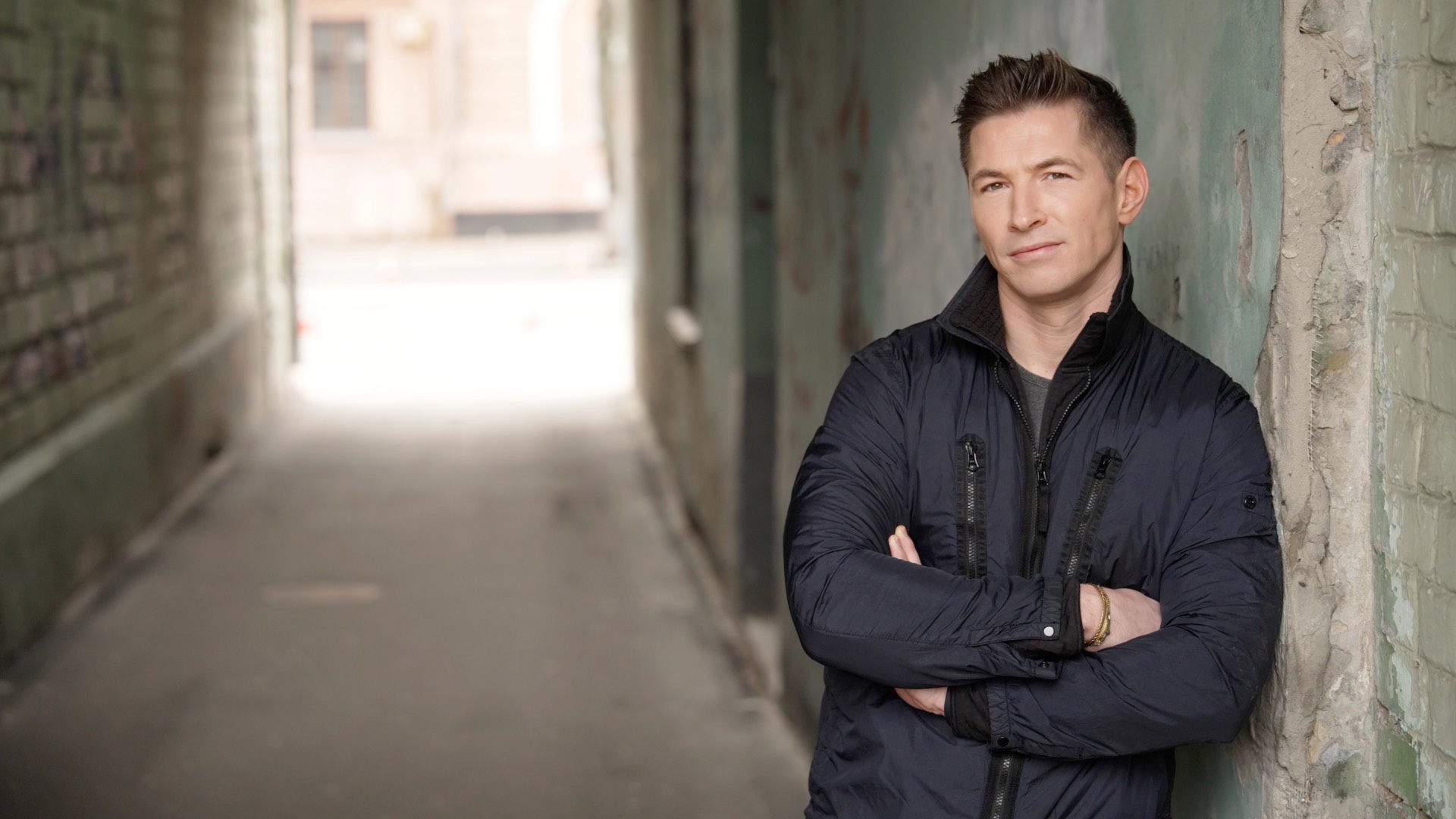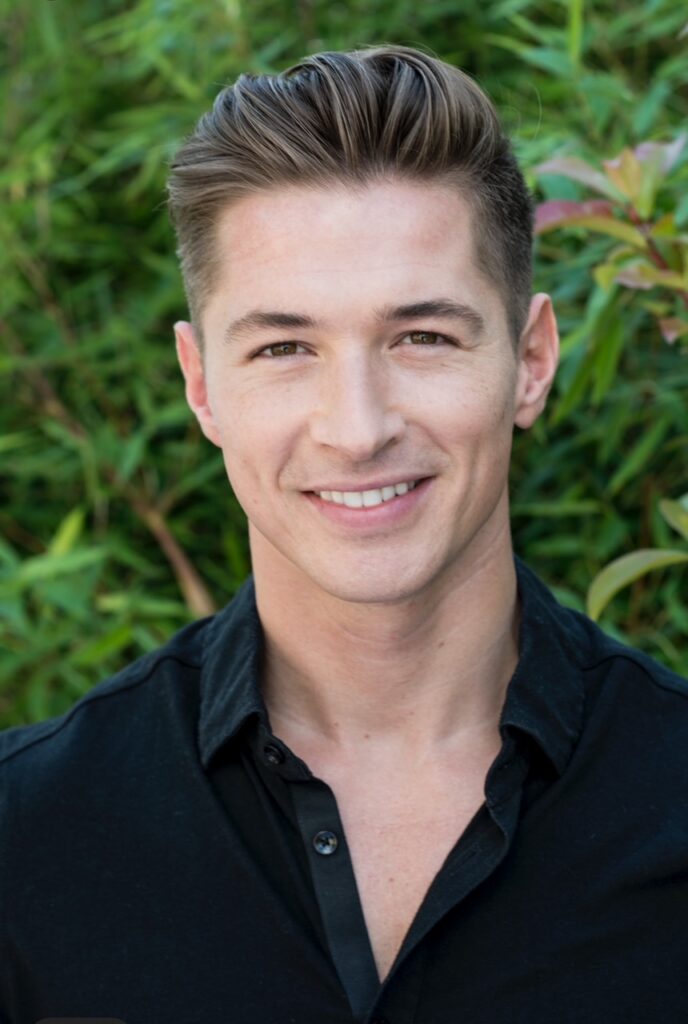ABC News war correspondent James Longman: ‘We must recognise vulnerable LGBTQ refugees’ (EXCLUSIVE)
The journalist - one of our media and broadcast trailblazers on this year's Attitude 101, empowered by Bentley - on documenting “the extraordinary relationships human beings have with each other” and sharing his own mental health struggles
By James Hodge

“I became a journalist by accident, really,” says James Longman, chief international correspondent at ABC News, and one of our broadcast and media trailblazers for this year’s Attitude 101, empowered by Bentley (see here for the full list of the 10 influential figures who made the 2025 Attitude 101 Media & Broadcast list). It comes as a surprise. How can a man whose career has reached such heady heights, who travels the world documenting some of the biggest international conflicts in recent history, have simply ‘fallen’ into it? The answer: his passion for telling the stories of ordinary people who have been thrown into extraordinary — and often tragic — circumstances.
Although born and educated in the UK — including a degree in Arabic — Longman began his journalism career covering Syria’s civil war, which started in 2011. “My mother is part Lebanese, and I wanted to connect with my heritage — to spend some time in the Middle East. I was going back and forth to Syria and, as it happened, I was in the right place at the right time to start documenting the civil war. I happened to be there at a significant point in history, and I was able to access stories that other journalists couldn’t.”
His first report was about a father who had witnessed the shooting of his son by the Assad regime, an incident that both scared and deeply moved Longman. But it was the journalist’s relationship with his own family that inspired his passion to share the stories of others.
“I wanted to build a career where I could document the extraordinary”
“I had a tough time growing up. My father took his own life, and I have a complex relationship with my mother, so family has always felt like a difficult thing to navigate. I wanted to build a career where I could document the extraordinary relationships human beings have with each other — to explore what happens in a family where there’s trauma, in exceptional situations that might make me feel afraid but also move me.”
Although war correspondence involves detailing tragedy, Longman’s aim is never to simply depress viewers with terrible stories of suffering and loss. “When you cover war and conflict, it can feel very sad. But what I try to do is give people a bit of hope as well. I feel like my job isn’t to tell you how horrible the world is. My job is to tell you that there are also people who live on the other side of the planet who have the same interests and ambitions and dreams as you do, and hopefully make you feel a bit more connected to them and the issues they face. I tell stories from the other side of the world that hopefully highlight our commonalities.”

As a gay man, Longman has rarely had negative experiences while working within the media; indeed, he believes his sexuality has been advantageous. “I think figuring out your sexuality is a challenge — both with the ability to empower and to make you question your worth. You feel judged. It taught me empathy — the ability to relate to others when they go through their own struggles. I feel like belonging to one minority allows me to better relate to the challenges other persecuted minorities face.”
Indeed, sometimes his travels have put him directly in the path of danger. His tact and candour when visiting the notoriously LGBTQ+-hostile Chechnya demonstrates not only his bravery as a gay man, but also the advocacy and activism that define him as a trailblazer and the leader of the Media & Broadcast category at the 101 Attitude Awards 2025. “I don’t think there’s a place on earth which is more hostile to LGBT+ people currently,” says Longman, recalling the experience. “I went to document the persecution of our community, and I met the man who was literally responsible for the murder of gay people. In Chechnya, LGBT+ people are reported, arrested and put in jail — where they disappear. He was showing me one such cell, and I decided to tell him I was gay. He let out a laugh of disbelief like a cartoon villain. I took his hand and put it on my heart, which was racing.”
What could possibly have made Longman put himself in such a vulnerable position? “In the moment, it felt like there was a power to the gesture. He had no idea I was gay — I wasn’t the stereotypical image of what he considers a gay man to be. I wanted to challenge him — to broaden his understanding of who he was persecuting. Perhaps my frankness would shift his mindset, even in the smallest of ways.”
Longman feels a similar sense of responsibility when broadcasting to an American audience in his work at ABC. “I broadcast to viewers who are often very conservative. I want to break down their ideas about what LGBT+ people are really like.”
“We need to recognise how vulnerable LGBT+ refugees are”
However, there are still many stories about LGBTQ+ life that Longman feels deserve more attention, particularly the plight of refugees. “Being a gay refugee is hard. Often, people fleeing countries can look for refuge in the West and plug into familial, religious or ethnic networks. LGBTQ+ refugees don’t have that network because their families have kicked them out, and they find themselves persecuted by the available broader networks as well, so they’ve lost the state, and their friends and family have turned away from them too. We need to recognise how vulnerable LGBT+ refugees are and find ways to better support them.”
Now, Longman has chosen to share his story in a new book, The Inherited Mind, a memoir and exploration of genetics that charts his own relationship with depression in the shadow of his father’s suicide. At once informative, thought-provoking, heartfelt and honest, the text synchronously explores epigenetics — in this context, the idea that our DNA may make us susceptible to historic mental health issues, and how this may help us understand our own challenges — set against the narrative of getting to know the father he felt he never knew.
“My desire to write came from being fundamentally curious about my dad because so much was kept from me,” he says of the motivation to tell his story. “I wanted to find out who he was, why he was the way he was. When someone kills themselves, the act of suicide becomes the only thing that anyone ever remembers and sucks all the energy away from knowing anything else about them — their personality, what made them laugh, their passions. I wanted to know that man.”
“You can inherit trauma, but you can also inherit healing”
Ironically, the desire to know his father also helped Longman better understand his mother. “When a suicide happens, it’s a bomb that goes off and it kills one person, but it injures loads of other people. And my relationship with my mother was really badly injured. The process of writing took me from a place of anger at her to recognising what she has tried to do for me in response to a tragedy — the sacrifices she has made for me.”
But there is also much in the book for the reader to take away in understanding their own mental health. Longman himself suffers with depression, and understanding the genetics of trauma has aided him on his own journey. “You can inherit trauma, but you can also inherit healing, and you can give that capacity to overcome to your family and children,” reflects Longman. “I hope that despite the mental health struggles people may have, the science I explore makes them more optimistic about their futures.”

This feature is taken from issue 363 of Attitude magazine, available to order here or alongside 15 years of back issues on the Attitude app.
